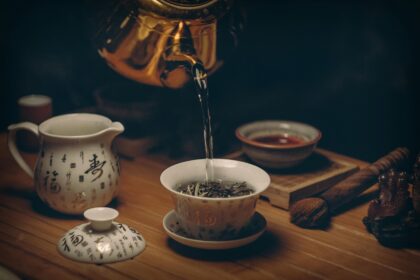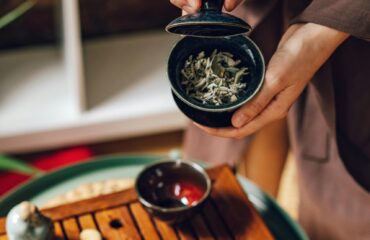Tea Time Traditions: A Global Perspective on the World’s Favorite Drink

Tea has been a beloved beverage for centuries, enjoyed by people all around the world. From elaborate tea ceremonies in Japan to cozy afternoon teas in England, each culture has its own unique traditions surrounding this comforting drink. In this blog post, we will explore tea-time traditions from different parts of the world and learn about the significance of tea in various cultures.
In Japan, the tea ceremony, known as “chanoyu” or “sado,” is a highly ritualized practice that dates back to the 9th century. The ceremony involves preparing and serving matcha, a finely ground green tea, in a traditional tearoom. Participants follow strict etiquette and procedures as they enjoy the calming effects of the tea. The Japanese believe that the ceremony promotes mindfulness and harmony among participants, making it a deeply spiritual experience.
Moving across continents to England, we find another iconic tea tradition – afternoon tea. Introduced by Anna, the Duchess of Bedford in the 19th century, afternoon tea became a fashionable social event among the English elite. Typically served between 3-5 pm, afternoon tea includes delicate sandwiches, scones with clotted cream and jam, and an assortment of pastries. It is enjoyed with a pot of black tea and is a delightful way to break up the day with friends or family.
In Morocco, mint tea holds a special place in daily life and hospitality customs. Known as “atai,” Moroccan mint tea is made with green tea leaves, fresh mint leaves, sugar, and boiling water. It is traditionally poured from high above into small glasses to create frothy bubbles on top. Mint tea plays an important role in Moroccan culture as a symbol of welcome and friendship. It is often served to guests upon arrival as a gesture of hospitality.
In India, chai is more than just a beverage – it’s a way of life. Chai wallahs can be found on every street corner serving up steaming cups of spiced black tea mixed with milk and sugar. Chai is enjoyed throughout the day as a pick-me-up or social drink shared among friends. In Indian households, chai time brings families together for conversations and bonding over a warm cup of fragrant brew.
Tea time traditions offer us insight into different cultures’ values and customs surrounding this beloved beverage. Whether it’s the meditative practice of Japanese tea ceremonies or the conviviality of English afternoon teas, each tradition highlights the importance of slowing down and connecting with others over a cup of tea. As we journey through these global perspectives on tea time, let’s savor not just the flavors but also the rich history and meaning behind each sip. So next time you brew yourself a cuppa, take a moment to appreciate the diverse tapestry of traditions that have made tea such an integral part of our lives worldwide.



